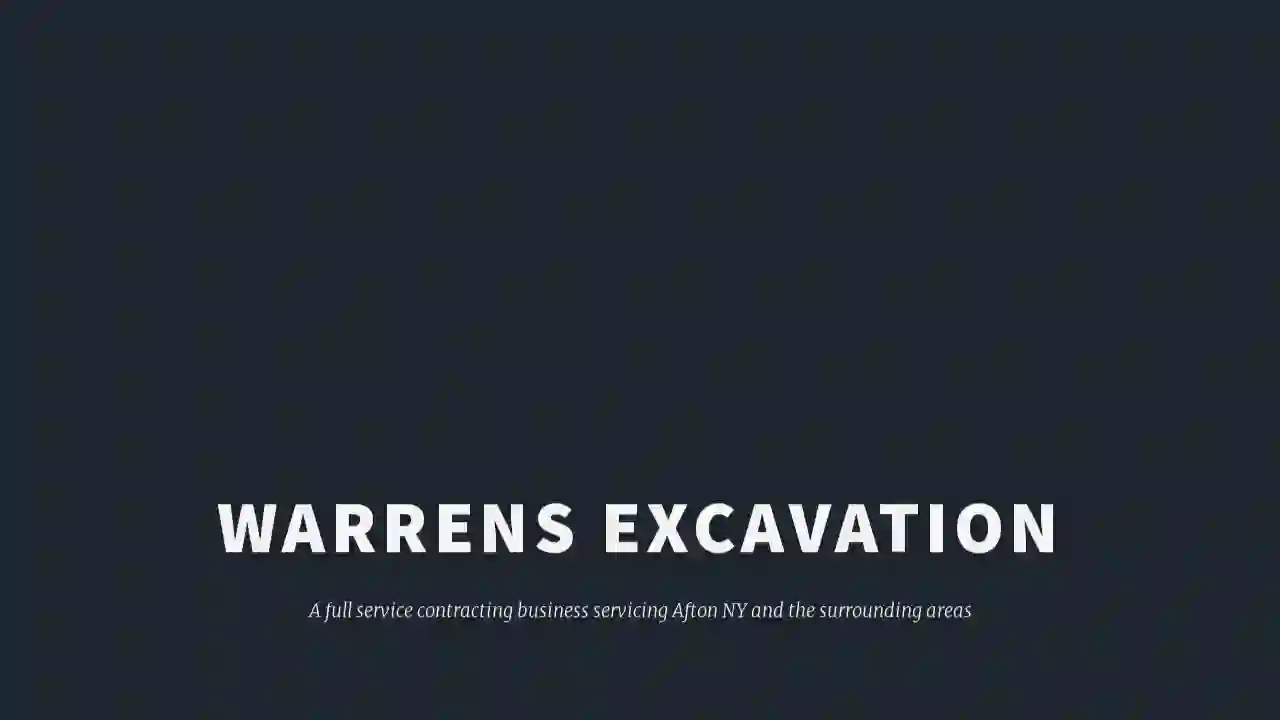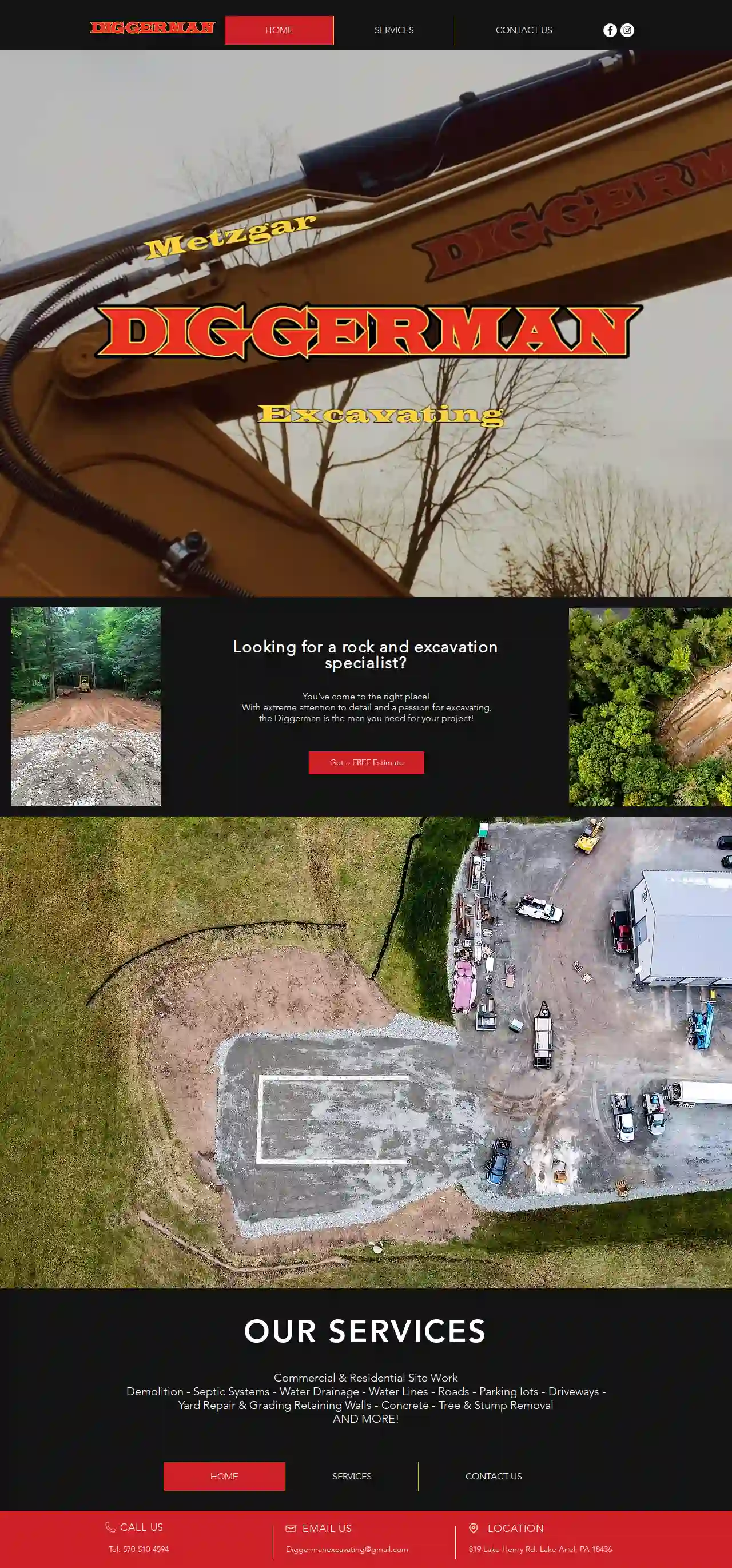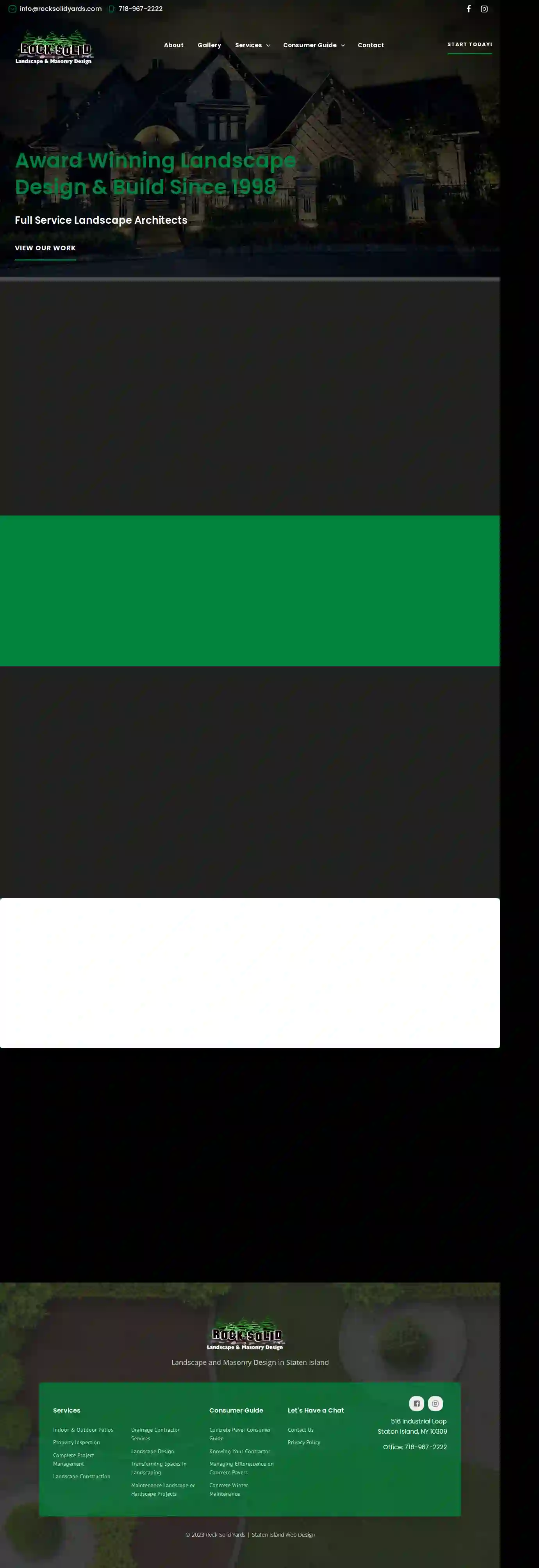Demolition Contractors North Strabane
Top 10 Local Demolition Contractors in North Strabane
Receive multiple Demolition Company Near Me quotes for your project today! Compare profiles, reviews, accreditations, portfolio, etc... and choose the best offer.

Mundis Excavating
53 reviews80 Manor Road, 80 MANOR ROAD, Red Lion, 17356, USAbout Us Red Lion local, Bob (Bobby) Mundis is the owner-operator of Mundis Excavating. Bob is the third generation excavator. He has 20+ years of experience in heavy equipment operation. Bob started his career as an operator for his father, Jay E. Mundis Excavating. He then moved on to become a project coordinator and later an estimator for a commercial contractor in Baltimore, MD. Bob oversaw projects in such institutions as NASA, Johns Hopkins University, and Johns Hopkins Hospital. In 2018, Bob decided to open his own excavating company in his home town of Red Lion. Maria Mundis Wife of Bob Mundis, Maria is the Controller of Mundis Excavating. Before graduating from Penn State University with Bachelor's of Science in Electro-Mechanical Engineering, Maria gained some work experience in banking industry. After completing an internship at Johnson Controls, Inc., Maria chose to become a stay-at-home mom to her and Bob's two children, later to begin helping Bob with his business. Family Owned Small Business Mundis Excavating was established in 2018 as a dream of one family to use our talents for honest service to others. Our company motto is: "A just scale and a fair measure." Our continuous goal is to work tirelessly in order to provide our customers with the best service and quality of work at affordable prices. We hope to continue growing our company in the years to come. Our Promise We are committed to providing honest and prompt service. The integrity of our business is our priority.
- Services
- Why Us?
- Our Team
- Gallery
Get Quote
CAG Construction Corporation
1540 Castleton Ave., Staten Island, USCAG CONSTRUCTION CORP. CONSTRUCTION DONE RIGHT Our experience ensures that your projects will be completed within budget, on time and with the upmost professionalism. LEARN MORE Family Run and Operated Construction Company Since 2007
- Services
- Why Us?
- Gallery
Get Quote
Warren's Excavation & Stone
51 reviews10000 10th Line, Tavistock, N0L 1P0, USWarren's Excavating: Your Trusted Partner for Excavation Services Warren's Excavating is a family-owned and operated business with over 20 years of experience in the excavation industry. We are committed to providing our clients with high-quality, reliable, and affordable services. Our team of experienced professionals is dedicated to exceeding your expectations and delivering exceptional results. We understand that every project is unique, and we take the time to listen to your needs and develop a customized plan that meets your specific requirements. Whether you're looking for site preparation, foundation excavation, utility installation, or any other excavation service, we have the expertise and equipment to get the job done right. At Warren's Excavating, we pride ourselves on our commitment to safety, quality, and customer satisfaction. We use only the latest equipment and techniques to ensure that your project is completed on time and within budget. We also offer free estimates and competitive pricing. Contact us today to learn more about our services and how we can help you with your next excavation project.
- Services
- Why Us?
Get Quote
Diggerman Excavating
819 Lake Henry Rd., Lake Ariel, 18436, USLooking for a rock and excavation specialist? You've come to the right place! With extreme attention to detail and a passion for excavating, the Diggerman is the man you need for your project!
- Services
- Why Us?
- Gallery
Get Quote
Brubacher Excavating Inc
4.561 reviews825 Reading Road, P.O. Box 528, Bowmansville, 17507, USAt the heart of our company are hundreds of team members who apply decades of experience to deliver Insight. On Site in service our clients and communities as we live out our mission of Shaping the World We Live In. Their character, commitment, and expertise combined with our integrated services and industry-leading fleet ensure we deliver quality results from start to finish. As an excavating company who proudly serves partners across Pennsylvania, Maryland and Delaware, we provide specialized industry expertise to deliver total client satisfaction. You can count on our team to work safely and efficiently and to get the job done right on time, every time. Our Core Values At Brubacher, we honor our core values as a team in the decisions we make, results we deliver, and experiences we provide. Safety Because Life Matters Integrity Do What Is Right Initiative Make It Happen Teamwork Better Together
- Services
- Why Us?
- Gallery
Get Quote
David H. Martin Excavating, Inc.
4.350 reviews4961 Cumberland Highway, Chambersburg, 17202, USYour Complete Excavating Solution Your projects deserve a reliable partner in delivering highly trained and trusted excavation solutions for jobs of any size. Our highly trained team is equipped with the skills and capabilities designed for residential homeowners to commercial project managers. Excellence & Integrity We understand the frustrations that arise with extended project completion dates, unexpected costs, and uncommunicative teams. Excellence and integrity are at the core of everything we do—it’s not just what we do, but the foundation for all that we are. Expect your project to be completed and on time—everytime.
- Services
- Why Us?
- Our Team
- Testimonials
Get Quote
Rock Solid Landscaping and Masonry Design, Inc
3.723 reviews516 Industrial Loop, Staten Island, 10309, USAward winning landscape design & build since 1998 Full Service Landscape Architects Award winning landscape design & build since 1998 Full Service Landscape Architects Award winning landscape design & build since 1998 Full Service Landscape Architects Rock Solid Landscape and Masonry Design Inc specializes in designing and creating your dream home. Being experts in both hardscape and landscape design in Staten Island, we will help build the concept from your vision and ideas, and bring them to life. From start to finish, we work together with each of our clients to ensure that the work that is being done matches the concept that they dreamed up. Let Rock Solid Landscape and Masonry Design Inc create your next landscape masterpiece. Rock Solid Yards is the winner of Two 2010 Staten Island Chamber of Commerce Building Awards for: ROCK SOLID LANDSCAPE AND MASONRY DESIGN INC. more about us Serving the Tri-State area since 1998. MICHAEL IZZO OWNER/MASTER DESIGNER Michael Izzo has over 20 years of Landscape and Masonry Construction experience. He built Rock Solid Landscape and Masonry Design, Inc. from the ground up and he attributes his success to practicing good old fashioned business ethics and promoting a company philosophy of “exceeding customer expectations”. “Customers will return to and promote a business that consistently shows up and delivers exceptional quality projects on schedule and on budget. It’s really that simple.” Trust us for your masonry design and landscaping in Staten Island
- Services
- Why Us?
- Our Team
- Testimonials
- Gallery
Get Quote
CAG Construction Corp.
30 Summit Ave., Staten Island, 10306, USCAG Construction: Your Trusted Partner for Concrete Construction and Site Work CAG Construction is a family-run business established in 2007, specializing in all phases of concrete construction and site work. We are committed to delivering projects within budget, on time, and with the utmost professionalism. Our team has the experience and expertise to work seamlessly with project managers and design teams, ensuring a smooth construction process. Our Commitment to Excellence Edward Gonzalez, our founder, is a graduate of the NYC Small Business Services Construction Mentorship Program, NYC SBS Bond Readiness Program, and the New York City Economic Development Corporation – Construct NYC Program. This comprehensive training has equipped us with the knowledge and skills to deliver exceptional results. Certifications and Accreditations We are proud to be a New York City MBE Certified company, demonstrating our commitment to diversity and inclusion. We are also SCA Approved and a member of the National Association of Minority Contractors (NAMC), further solidifying our dedication to industry standards and ethical practices.
- Services
- Why Us?
- Gallery
Get Quote
Kirby Kitner Excavating & Paving
4.86 reviews7214 Spring Road, New Bloomfield, USWelcome to Kirby Kitner Excavating! Whether it is site prep for new structures, foundations, road building, graves sites, drainage or septic systems, Kirby consults with all customers personally and is present on all job sites to assure you of quality workmanship. Our staff is professional, experienced, and dependable. We are celebrating our 39th year in business. Kirby Kitner Excavating is a local, family-owned business. Our company is fully insured and we give free estimates. Kirby Kitner Excavating is a DOT Registered Motor Carrier: USDOT 2291670 and a Registered PA Contractor: # PA027056. We are members of the Perry County Chamber of Commerce. Kirby Kitner Excavating is located at 7214 Spring Road, New Bloomfield, PA.
- Services
- Why Us?
- Gallery
Get Quote
Perfect Estimator LLC
510 reviews920 HYLAN BLVD, STATEN ISLAND, NEW YORK, 920 HYLAN BLVD STATEN ISLAND, NEW YORK 10305, Staten Island, 10305, USACHIEVE YOUR BIDDING SUCCESS Experience the Power of High-Value Estimating Services Share Gain access to valuable insights and knowledge, empowering you to make informed decisions and win bids confidently. Automate Utilize cutting-edge technology to automate the estimating process, saving time and ensuring accuracy, so you can focus more on your business development. Win Achieve your goal of winning more bids with high-value, accurate estimates, gaining a competitive edge needed to drive your profit gains and business growth. Reliable Estimating and Takeoff Solutions For over a decade and a half, Perfect Estimator LLC has been a beacon of trust in the construction domain, delivering premium quantity take-off and cost estimation services to contractors across the USA, UK, and Australia. Our proficient team of construction estimators has garnered acclaim for their swift and accurate material estimates, tailored to meet the needs of diverse construction trades. Our array of services encompasses precise estimation for residential, commercial, and industrial ventures, meticulously aligned with the standards set by esteemed bodies like the American Estimators Organization and the American Association of Cost Engineers (AACE). At Perfect Estimator LLC, we prioritize adherence to industry guidelines to ensure the utmost accuracy in our estimates. Backed by seasoned construction managers and adept quantity surveyors, Perfect Estimator LLC excels in delivering comprehensive material takeoffs. Leveraging a suite of industry-standard tools and software such as Planswift, Bluebeam, and Trimble, our team guarantees precise estimates that meet the rigorous demands of our clientele. Proficiency in tools and software is integral to our operations at Perfect Estimator LLC. From Planswift to Xactimate, our expertise extends to FastPIPE, FastDUCT, and more, enabling us to deliver accurate estimates efficiently. Additionally, our utilization of RS Means, Craftsmen, and proprietary databases for zip-code-based pricing underscores our commitment to excellence. This proficiency, coupled with our reputation for credibility and affordability, positions Perfect Estimator LLC as a leading provider of construction estimating services.
- Services
- Why Us?
- Gallery
Get Quote
Over 22,076+ Excavation Contractors registered
Our excavation providers operate in North Strabane and beyond!
ExcavationHQ has curated and vetted Top Excavation Businesses near North Strabane. Find a trustworthy pro today.
Frequently Asked Questions About Demolition Contractors
- Enclosure: Sealing off the asbestos-containing material to prevent fiber release.
- Encapsulation: Coating the asbestos-containing material with a sealant to bind the fibers.
- Removal: Carefully removing the asbestos-containing material and disposing of it safely.
How can I tell if my building contains asbestos?
What is the difference between demolition and deconstruction?
Demolition: Typically involves bringing down a structure quickly and efficiently, often using heavy machinery and potentially explosives. The primary goal is to clear the site.
Deconstruction: Focuses on carefully dismantling a building piece by piece to salvage reusable materials. It prioritizes minimizing waste and environmental impact, often involving manual labor and specialized tools.
The choice between demolition and deconstruction depends on the project's objectives, budget, and environmental considerations.
What are the different methods of asbestos abatement?
What is asbestos abatement?
How can I tell if my building contains asbestos?
What is the difference between demolition and deconstruction?
Demolition: Typically involves bringing down a structure quickly and efficiently, often using heavy machinery and potentially explosives. The primary goal is to clear the site.
Deconstruction: Focuses on carefully dismantling a building piece by piece to salvage reusable materials. It prioritizes minimizing waste and environmental impact, often involving manual labor and specialized tools.
The choice between demolition and deconstruction depends on the project's objectives, budget, and environmental considerations.
What are the different methods of asbestos abatement?
- Enclosure: Sealing off the asbestos-containing material to prevent fiber release.
- Encapsulation: Coating the asbestos-containing material with a sealant to bind the fibers.
- Removal: Carefully removing the asbestos-containing material and disposing of it safely.